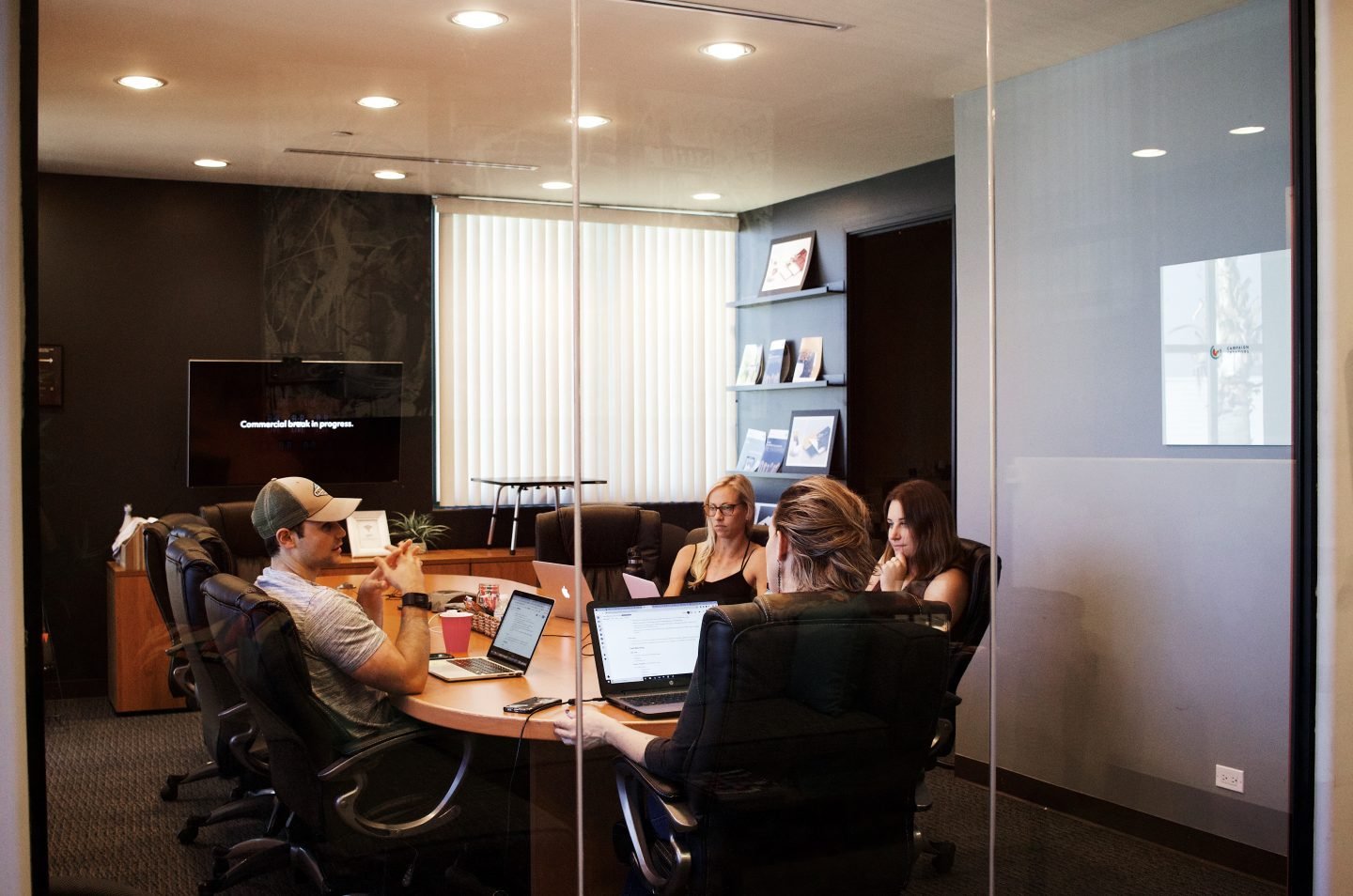
Elise Keith Makes Meetings Run More Successfully With Lucid Meetings
Everyone meets, and at some level, everyone struggles to meet well.
In the past, most businesses could get away with leaving leaders to figure out their meetings on their own. Not any more. Today’s knowledge-based economy thrives on rapid information flow, agility, and change. Interdependent teams tackling increasingly complex work must meet well to keep up. Otherwise, teams suffer too much time wasted in unproductive meetings, preventing them from achieving their goals.

Elise Keith, the co-founder and CEO of Lucid Meetings, the author of Where the Action Is: The Meetings That Make or Break Your Organization, and a regular contributor and expert commentator on all things business meetings (as featured in Inc, BBC News, SHRM Magazine, Industry Week, Conscious Company Mag, and the Savvy Dentist podcast) shares her journey with creating Lucid Meetings.
Over the past 10 years, the company has worked with thousands of organizations to make it easier for them to run successful meetings. We interviewed with Elise to discover her pursuit of tech, development of Lucid Meetings, favorite inspirations and more…
Where do you consider to be home?
When I was young, my family lived in a 3-room logging cabin in the foothills. The neighbor kids were a long way off and there wasn’t great TV reception up there, so I spent my free time wandering the woods with a book.
I still feel most at home on a shady Northwest forest trail, far away from cell phone signals and Slack notifications. I now live in Portland, OR with my business partner husband and children.
Is there a specific place that inspired your pursuit of tech?
I love the way that technology makes it possible to solve interesting problems and work with fabulous people all over the world during the day, then step outside to explore new trails when the work is done. My pursuit of technology was inspired by my love for all the technology-free places you can enjoy when you get away from the big cities. Technology made it possible for me to join an international professional community without sacrificing all of my rural roots.
What are your favorite apps?
I like the apps that keep me healthy, focused, and connected. Right now, my top favorites are:
- Slack: this is how our team stays in touch and where we see regular notifications that give us a feel for the pulse of our business.
- Zoom + Lucid: we always use these together for our meetings, giving us rich communication and excellent results.
- Daily Burn: because I have to take care of myself if I want to do the work I love, and I don’t have time to go to the gym. I also deeply appreciate their focus on the community.
- Epicurious: I love to cook delicious things! My saved recipe box has over 200 delicious options (and a few stinkers, but I don’t hold that against them.)
- Facetime: because that’s how my son in the Coast Guard and my parents get in touch.

If you had to choose 5 apps to have forever, what would they be?
I’ve been working in technology since 2000, so this question doesn’t make sense to me. I know when I started, I wouldn’t have envisioned anything like the apps I love today and I believe that will be true 5 years from now too.
For example, while we use Slack every day now, 10 years ago it was IRC. 5 years ago, it was Skype. Is Slack better? Sure, in lots of ways – but it’s also more distracting and way more likely to bog down my computer than our old IRC command-line tools.
I’m looking forward to seeing how technology evolves and wouldn’t hope to hold on to any of today’s apps too tightly.
What was one thing you did that exceeded your expectations when you began developing Lucid Meetings?
In the beginning, I had a good sense of what it would take to develop the technology, but no idea how important it would be to develop the educational resources people need to meet well.
We all know that meetings are this constant source of complaint, and most people know the basic steps you can take to make a meeting better. We assumed that if people had technology that made it easy to take these steps, more people would start running decent meetings. I learned, though, that while technology makes the work easier, the real barrier was a lack of confidence. Too many people work in environments where bad meetings are the norm, and any attempt to change how those meetings run was going to rock the boat.
When we figured this out, we started writing meeting guides for leaders, explaining exactly what to do, what questions to ask, and more. People love these guides – they get thousands of downloads every month and we get an email every week about how they’ve helped leaders transform their teams. I hadn’t expected that. I was even more surprised by what followed. We began to work with meeting experts from around the world, learning all kinds of special ways to run meetings in different environments, and we’ve worked with academic and industry researchers.
Now, what started as a SaaS app for managing meeting agendas and creating minutes has put us at the center of a larger international conversation about what it takes to achieve meeting excellence.

Technology in itself is a success. What does success mean to you? What are your rules for success?
We help teams run successful meetings every day. Meetings, like technology, are important tools teams use to achieve their goals.
So the most important factor in our success is the success of those teams. When we hear from a leader who’s team has been invigorated when they learned to meet well, that’s a victory for us. When we see a team shave 15% off the time they’re spending on meetings without sacrificing quality, that’s a victory. When we see an organization turn around a dismal employee retention rate by teaching managers how to make meetings engaging, that’s a victory.
My co-founders and I also firmly believe in the equitable exchange of value. Our business has to have a healthy cash flow to fund our work. Success means the people we serve find our work valuable enough to make our business sustainably profitable.
How important are meetings in the business world?
I believe they’re critical, which is why my book is titled Where the Action Is: The Meetings That Make or Break Your Organization, and there’s a lot of good research that backs this up.
You don’t have to take my word for it, though. Here are three ways readers can test this one for themselves:
- Think about the beginning and end of every major turning point in your career. What role did meetings play? Could you have gotten where you are now without those interviews, consultations, negotiations, or other meetings?
- Would you hire a sales representative who didn’t like meetings and had no meeting skills?
- Find 10 articles on employee engagement, change management, leadership, sales, or project success. HBR is a great place for this. Count the number of times meetings are mentioned. (Tip: meetings go by many names, so make sure to skim for the names of specific types of meetings like interviews, status checks, negotiations, one-on-ones, training, etc.)
Meetings are how we work with other people to reach agreements, build trust, create a shared understanding of our work, and set all the rest in motion. Teams that don’t meet cease to function as teams. Sales people who don’t meet with clients don’t sell. Leaders who don’t meet with their employees are not leading.
Meetings are where the action is.

What tech trends are you most excited about for 2019?
Virtual whiteboards are getting better all the time, and I’m excited to see how those technologies evolve in the next few years. Meetings can often be improved when we get people out of their chairs and working together with sticky notes and markers, but today it’s hard to do that well with a distributed workforce.
The tech that will make these interactive meetings accessible to a wider range of teams is getting better and cheaper all the time, and I’m looking forward to seeing how that shakes things up.
The Fox Magazine is all about inspiration, what/who inspires you the most?
I’m inspired by the growing number of advocates for long-term thinking, conscious capitalism, and using the power of business for good. Mara Zepeda, Jennifer Brandel and the other founders of the Zebra movement here in Portland (https://www.zebrasunite.com/our-story), Steward Brand and the Long Now Foundation (http://longnow.org/), and the people behind the creation of the Benefits corporation model (https://benefitcorp.net/) are all examples.
What’s something people would be surprised to learn about you?
When I was getting ready to leave my job and start Lucid Meetings, I seriously debated opening a grilled cheese shop in the mountains instead.
Technology can be hard. As an internet-based business, we’re always dependent on a whole stack of other companies who regularly change out the environment under us. I can’t tell you the number of times Google just changed their mind about some piece of tech we’d integrated. And because we’re working to solve a real business problem rather than capture consumer eyeballs, the customer environments are also all over the map. Some companies are now ditching their fax machines and replacing them with online services like sending a fax from Android gadgets. In contrast, others expect artificial intelligence to run their meetings. We regularly hear from customers across this spectrum every day.
I knew to figure out how to navigate all this complexity was going to be really tough. On the other hand, you always know where you stand with a grilled cheese sandwich.

What is your favorite innovation-related motto, quote or words to live by?
Discipline is simply remembering what you really want.
I have this on my mug at the office, and a similar reminder tattooed to my forearm. In a world with so many possibilities, it’s easy to get sidetracked. It can also be easy to feel like you’re missing out when you choose to work through a beautiful spring afternoon.
This quote reminds me that it’s my choice. Do I really want to skip out early to sip margaritas in the sun, or do I want to solve this successful business puzzle? Of course, I want both – but I want one of those more. When I remember what I really want more, I no longer feel cheated when I have to choose. I feel committed, and that’s a powerful place to be.
Connect With Elise!









